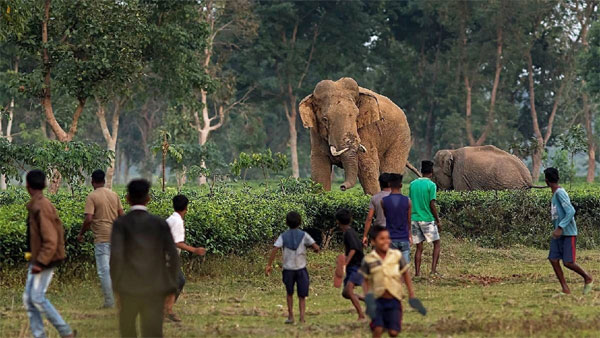Daijiworld Media Network - Thiruvananthapuram
Thiruvananthapuram, Sep 13: In a landmark decision aimed at tackling the escalating issue of man-animal conflict, the Kerala Cabinet has approved a draft Bill that would permit the killing of violent wild animals that stray into human settlements. The move, announced after a special cabinet meeting held on Saturday, signals a significant shift in the state’s wildlife management policy and sets the stage for amendments to the Wildlife Protection Act of 1972.
As the legislation falls under central jurisdiction, the state will now seek the President's assent for the proposed changes. Once cleared, the Bill will be tabled in the Kerala Assembly session starting Monday.

The proposal follows widespread unrest and protests in the state's high-range areas, where incidents involving wild elephants, boars, and other animals have increasingly endangered both lives and livelihoods. Data from government records paints a grim picture — over 55,800 wild animal attacks were reported between 2016 and 2023, with 909 human fatalities, including 180 deaths from elephant attacks alone.
The Cabinet also approved a measure to classify violent wild animals as "vermin", allowing for their legal culling, and cleared a separate Bill to allow private individuals to cut down sandalwood trees grown on their own land — subject to Forest Department permission.
While procedural challenges remain, the timing of these decisions is politically loaded. With local body elections due later this year and Assembly elections in 2026, the ruling LDF government appears to be responding directly to rural voter concerns, particularly in forest-adjacent constituencies hit hardest by human-wildlife conflict.
The decision has drawn strong support from sections of civil society, including the Catholic Church, which welcomed the move and called it a necessary step for the protection of human lives and agriculture.
The bills are expected to face scrutiny and debate in the Assembly, but the government's assertiveness on this front reflects a growing urgency — and perhaps a calculated political gamble — to bring relief to vulnerable communities living on the frontlines of Kerala’s forests.